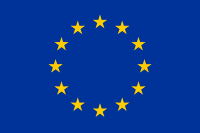Introduction: Digital Transformation
Understanding the ramifications of Digital Transformation
About this process
This process belongs to Guidelines for CHIs Digital Transformation
The COVID-19 crisis accelerated the push for cultural heritage institutions (CHIs) to strengthen their digital presence and agency. For many, the website and social media were suddenly the only spaces left to engage with their audiences. In many cases, this made them scramble to transform digital catalogues into attractive online user experiences such as virtual exhibitions and galleries, 3D animations and digital stories.
The COVID-19 crisis accelerated the push for cultural heritage institutions (CHIs) to strengthen their digital presence and agency. For many, the website and social media were suddenly the only spaces left to engage with their audiences. In many cases, this made them scramble to transform digital catalogues into attractive online user experiences such as virtual exhibitions and galleries, 3D animations and digital stories.
But it also brought home an awakening to a dire reality: in many cases, digitisation efforts had not been aligned with curatorial needs, digitised contents proved unusable due to copyright restrictions, and novel demo applications proved hard to maintain. The main focus was put on how the digitisation of cultural heritage would add to different sectors, without consideration for what digitisation means as a transition of the whole organisation. The much needed organisational change to incorporate digitisation as a transversal aspect of the functioning of museums was often neglected.
It must be acknowledged, however, that this was not all due to a lack of foresight at the institutional level. Digitisation of the European Cultural Heritage sector has been a rocky road, often following agendas and priorities disingenuous to their core mission, such as the promotion of a digital economy or stimulating tourism. While culture is the prerogative of the member states, the freedom of action at the European level is rather limited. This explains why most of the actual funding came from ICT budgets managed outside of DG Culture programme.





Share: